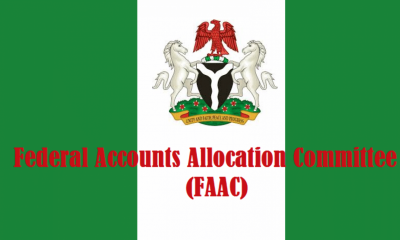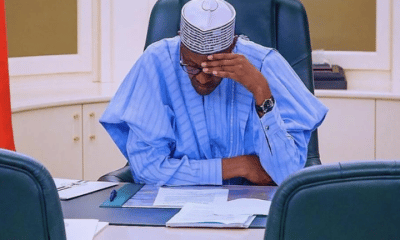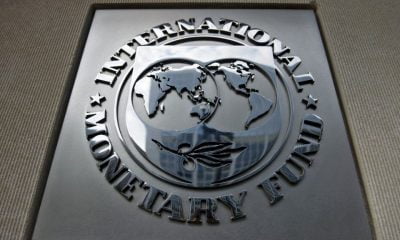Business
FAAC Allocation Declines By 30%, States’ Finances May Worsen

Federal, state and local governments’ revenue allocation has dropped from a peak of N970.57bn in July 2021 to N680.783bn in May 2022.
The decline in the allocation represents a 30 per cent reduction over the period.
The decrease in allocation to these levels of government reveals the fiscal challenges facing various levels of government in Nigeria.
A Professor of Economics at the Covenant University, Jonathan Aremu who spoke with Punch said, “It is obvious that with this outlook, state governments will not be able to execute capital projects, pay salaries and meet other needs. This is time for states to look inwards.”
According to the International Monetary Fund estimates, Nigeria earns its biggest revenue from crude oil, but it has paid N2.1tn subsidy in the first six months of the year and could pay another N4tn by the end of the year.
The opaque and fraudulent subsidy regime has made it nearly impossible for the Nigerian National Petroleum Corporation to make remittances to the government consistently.
The Federal Government has raised its budgetary allocation of N443 billion for gasoline subsidy to N4 trillion and has received approval from the National Assembly.
The situation is worsened by declining oil production and theft. Oil production fell to 1.2 million barrels per day in April 2022 from 1.238 million barrels in March, according to OPEC Monthly Oil Market Report.
This is far from the oil benchmark of 1.88 million barrels per day in the 2022 budget.
Company Income Tax in Nigeria fell from N472.52bn obtained in the third quarter of 2021 to N347.81 billion in the last quarter of 2021, indicating a 26 per cent decrease over the period, according to the National Bureau of Statistics,
Aremu further stated, “A lot of states did not think the revenue would decline so fast. The revenues would go down if their sources are declining. It costs more now to construct those projects, so states need to look inwardly. They also need to plug leakages because this is not the time to waste money at all.”












